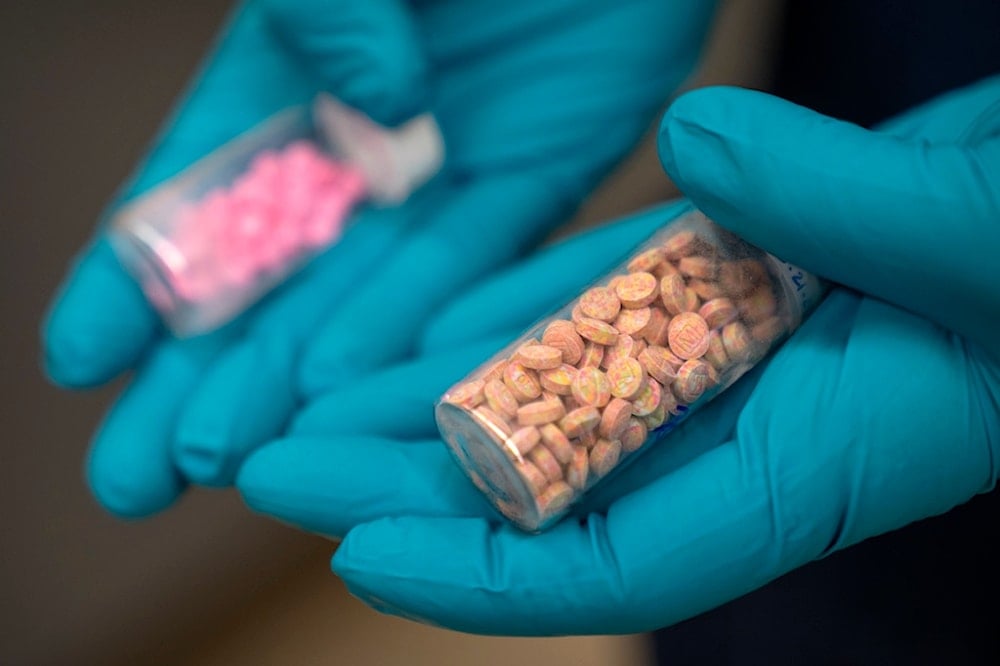Chinese fentanyl kingpin extradited from Cuba to US
China’s “Brother Wang,” accused of trafficking fentanyl for Mexican cartels, has been extradited from Cuba to the US after a global manhunt.
-

Jonathan Dumke, a senior forensic chemist with the Drug Enforcement Administration, holds vials of fentanyl pills at a DEA research laboratory on Tuesday, April 29, 2025, in Northern Virginia. (AP)
A Chinese national accused of trafficking fentanyl has been extradited from Cuba to the United States with the assistance of Mexican authorities, Mexico’s government announced Thursday.
Zhi Dong Zhang, also known as Brother Wang, had escaped house arrest in Mexico in July before being transferred into US custody, Mexican Security Secretary Omar Garcia Harfuch confirmed.
Zhang is accused of serving as a key link between China-based chemical suppliers and Mexico’s powerful Sinaloa and Jalisco New Generation cartels, both designated as “foreign terrorist organizations” by Washington.
According to the Cuban government, the extradition followed “a formal request for extradition” from the United States. However, neither Mexico City nor Havana clarified whether Zhang was transferred through Mexican territory or flown directly from Cuba to the US.
Garcia described Zhang as “a major international money-laundering operator,” explaining that he built networks connecting cartels across multiple continents to facilitate the global trafficking of fentanyl. “He was responsible for establishing connections with other cartels for the transfer of fentanyl from China to Central America, South America, Europe, and the United States,” Garcia said last year.
Washington increases pressure on China and Mexico
Since US President Donald Trump’s return to the White House in January, Washington has intensified its campaign to pressure both Mexico and China to take stronger action against the flow of fentanyl, a synthetic opioid 50 times more potent than heroin and a leading cause of overdose deaths in the United States.
Since September, the US has carried out six attacks in Latin American waters, targeting vessels it claims to be peddling drugs into the US without offering evidence to substantiate its claims. To date, the number of those killed in these strikes is at least 27.
These attacks are part of Washington's military buildup off the Venezuelan coast in line with increased tensions between the US President and Venezuelan head of state Nicolas Maduro.
Warmongering to 'monitor region'
The US has recently deployed a number of naval vessels off the Venezuelan coast under the guise of monitoring the region. These military assets include submarines, destroyers, and F‑35 fighters stationed near Puerto Rico.
Additional information shows the MV Ocean Trader, a vessel configured as a floating Special Operations base, as well as the C‑17 Globemaster aircraft operating near Trinidad and St. Croix.
In early October, US Secretary of War Pete Hegseth announced his department is forming a joint task force to operate in the US Southern Command area of responsibility at Trump's request "to crush the cartels, stop the poison, and keep America safe."

 3 Min Read
3 Min Read










